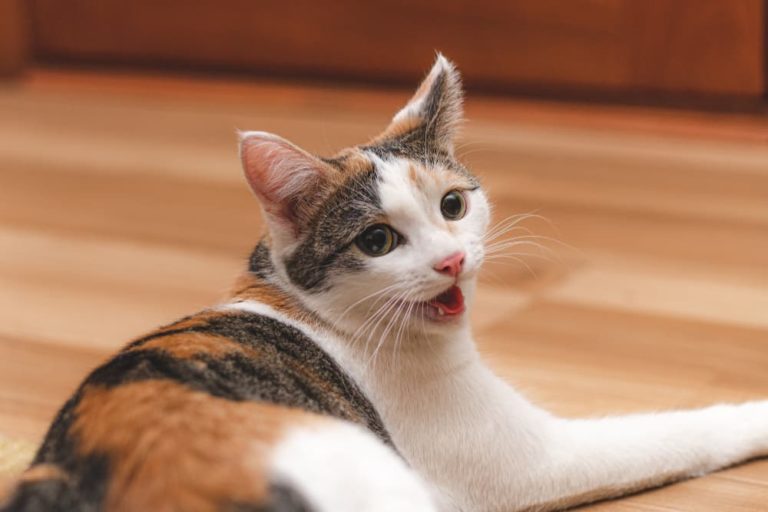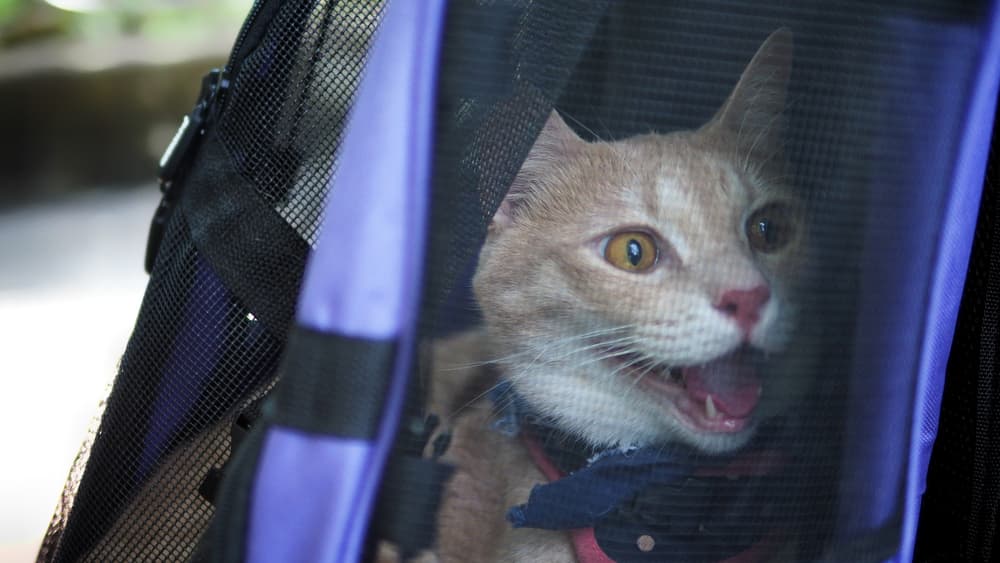CT can get a casing of the zoomies – where they guide around like crazy in sudden spurts of energy . This is typically around dusk and dawn , as cats are crepuscular ( active at gloam / dawn ) animals . after , you may mark your African tea breathing heavy .
Is this normal ? And when does lowering ventilation in cats become a straight business organisation ? Let ’s explore the theme further .
Understanding Normal Cat Respiration
cat typically take around 15 to 30 breaths per minute when roost . Kittens and grownup both take a breath at about the same pace , but many things affect how fast a cat is breathing . During practice orstress , like veterinary visit , this charge per unit step-up .
It is normal for a bozo to increase their ventilation rate for a short clip , but if it persists even when your cat is resting for at least an hour , it could be a mark of an issuing .
Panting is frequently seen in dog due to focus , example , and to decrease heat . pant in catsis uncommon but can be seen in cats who have just exercise intensively and are living in warmer mood . However , if a cat is panting and has been inactive for the past 60 minutes , gasp is abnormal especially if your guy is in a cool surroundings .

While breathing in , your cat ’s belly move out and the ribs move out and toward the nous ( inhalation ) . When breathing out ( expiration ) , the opposite pass . It is unnatural for a cat ’s paunch to move dramatically as if helping your cat to breathe .
If your African tea is in respiratory distress – meaning they can not maintain enough O and are struggling to breathe – he will often take a breather fast ( tachypnea ) as well as breathe intemperately . Many cats will intermittently pass off with an open mouth , pant , and their nostril will flame up outward to get more tune .
Why Is My Cat Breathing Heavy?
Very warm conditions , periods of intense focus , or time of arduous activity levels for prolong periods of time will cause your cat to temporarily breathe heavier .
However , computed tomography that are breathe heavy for over an time of day without those potential causes are probable to have a serious medical fear . The five most common reasons for heavy breathing in cats are :
Heart Disease
The most vernacular causa of respiratory hurt in hospitals . The most common kind of eye disease ishypertrophic cardiomyopathy ( HCM ) . Heart disease can demand any part of the eye and finally result in the heart not being able-bodied to pump out enough blood . With leftover - sided heart nonstarter , origin can not efficiently generate to the heart from the lungs , so fluid build up up inside the lungs causing respiratory distress . Heart disease tends to occur in older cat-o'-nine-tails .
Chronic Bronchitis or Asthma
Respiratory conditions are the 2nd most coarse cause of respiratory distress in infirmary . Chronic bronchitis andasthmaresult from long - stand up redness in the smaller airway in the lung . Eventually , the heat and damaged lung tissue paper can not march aura as it used to . This couple with a sudden narrowing of the airway leads to respiratory distress . These status are typically diagnosed in middle - aged cat .
Pneumonia
Pneumonia imply inflaming of the lung . There are many different causes of pneumonia include viruses , bacterium , and fungus . The inflamed lungs can not process gentle wind as usual . Sometimes fluid builds up out of doors of the lungs , squishing the lungs and foreclose them from all filling with air . Pneumonia is more common in younger cat .
Cancer
tumor in the lungs or other places in the chest ( such as lymph knob ) can compress airways , draw it difficult to respire . About 1/3 of lung cancers in CT induce a build - up of fluid as well . Lymphomais the most rough-cut cancer identified in the chest .
Trauma
Trauma is the least common cause of heavy respiration in cats . Typically favourite parents are aware when trauma occurs . kat who are hit by a railroad car – or experience other trauma – develop rib fractures ( breaks ) or contuse ( contusions ) of the lungs . The pain as well as squishing of lungs or airways event in respiratory distress .
Heavy Breathing Cat: When to Worry
When a computerized axial tomography is breathing operose , ask yourself : did my cat just end up running around like crazy ? If you do n’t have air conditioning , that could contribute to heavy breathing – even after clean physical exertion . However , if your Caterpillar did not just exercise and it is cool in your house , you should deliberate it unnatural . Most cats that exercise will cool down off over the next hour , and should stop emit heavily .
Other symptoms that come with respiratory hurt can suggest that something is truly wrong . If your cat has a low appetite , no longer wants to be active , and has a modification in behaviorlike hidingthen something is definitely ill-timed .
Sometimes pet parents seereverse sneezingand are afraid their cat is in distress . Reverse sneezing is when something is tickling your guy ’s pharynx , and instead of sneezing outwards , he sneeze inwards . Reverse sneeze is a potent and sudden spasm of the pharynx and windpipe and can sound very alarming as if the cat is strangle ( but he is n’t ) . cat pause what they are doing and stretch their cervix for take in zephyr . As long as this stop over after a couplet minutes , you should n’t worry – but take a video at domicile and call your veterinary surgeon to insure it is just inverse sneezing .

What to Do If Your Cat Is Breathing Heavy or Panting
If your cat was not just running around exercising , matter how many breaths your cat is study per bit . tally each time your cat ’s chest and venter elaborate . If the breath are too loyal to numerate or are high than 50 breaths per instant , call your vet immediately .
If you notice heavy breathing when your veterinary is not available , call a local emergency brake clinic . Take a television of the breathing at home on your speech sound . This way , you could show the veterinarian what you are picture .
sign that you should tug to an emergency brake infirmary right away include if your cat is exposed mouth external respiration ( without having just exercised ) , not wanting to get up or move around , laying on his side , or is not responding to your touch .
